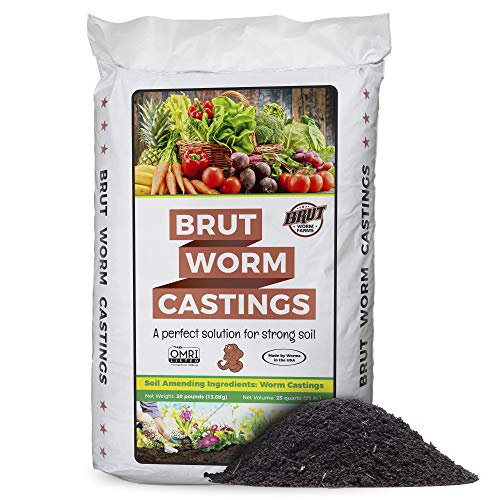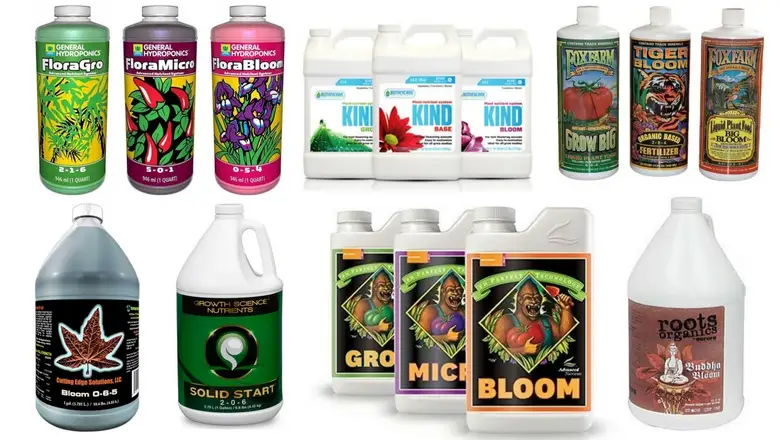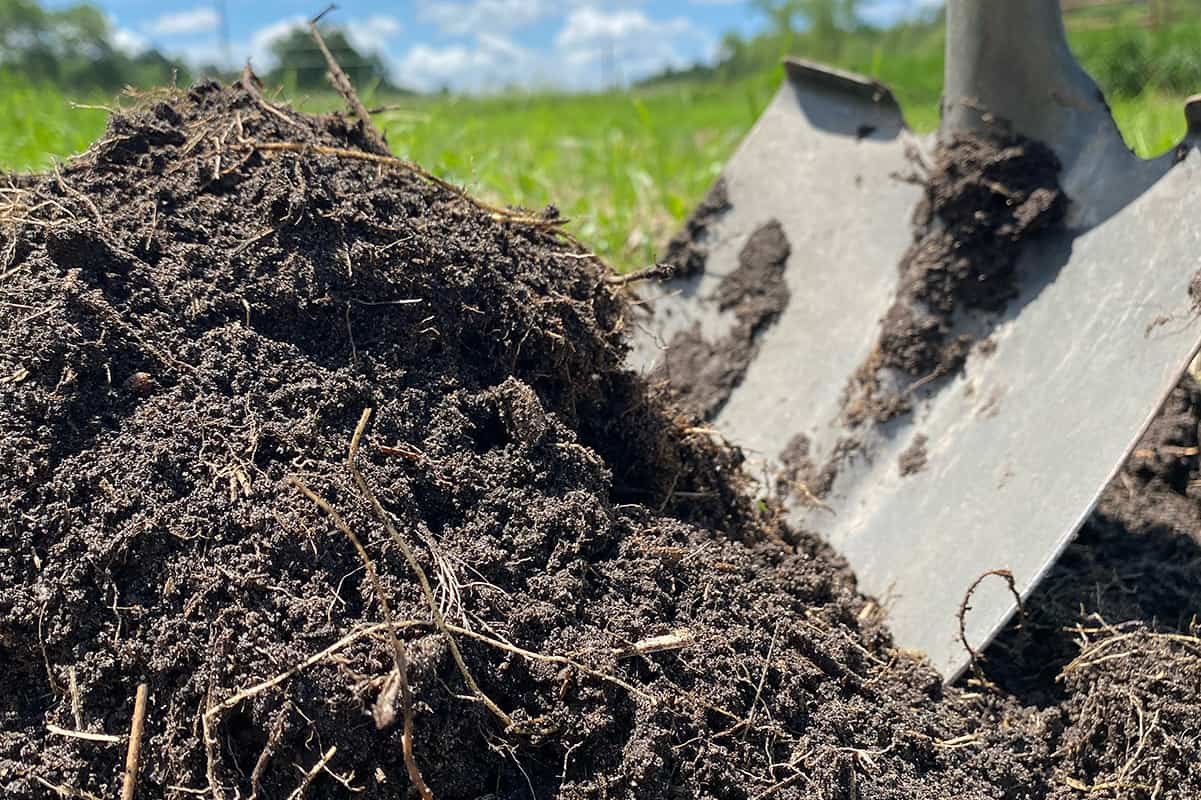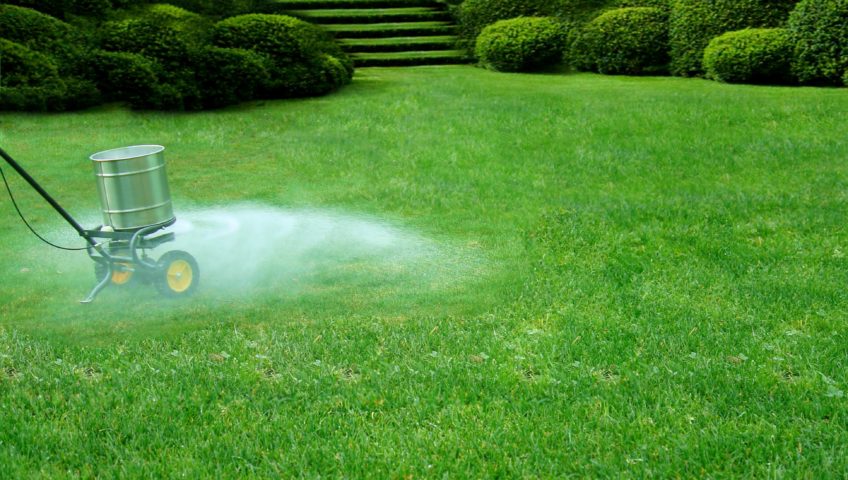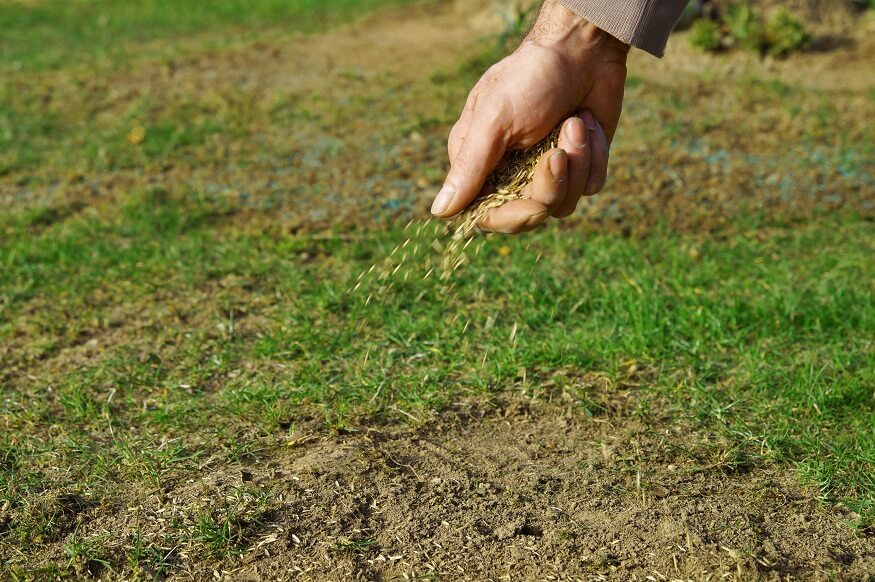Best Compost For Flower Beds : Review And Buying Guide
Philip Jackson Apr 19, 2024 10:38 AM
Are you looking for the best compost for flower beds on the market right now? If you said yes, consider yourself extremely fortunate, as you have arrived at the pinnacle of your search. Let us do the legwork for you so you can focus on more important things.
Perplexity about which best compost for flower beds to purchase is a very common occurrence. This problem arises as a result of the large number of different best compost for flower beds available on the market today. We've put up a comprehensive guide to assist you in selecting the best compost for flower beds available on the market today.
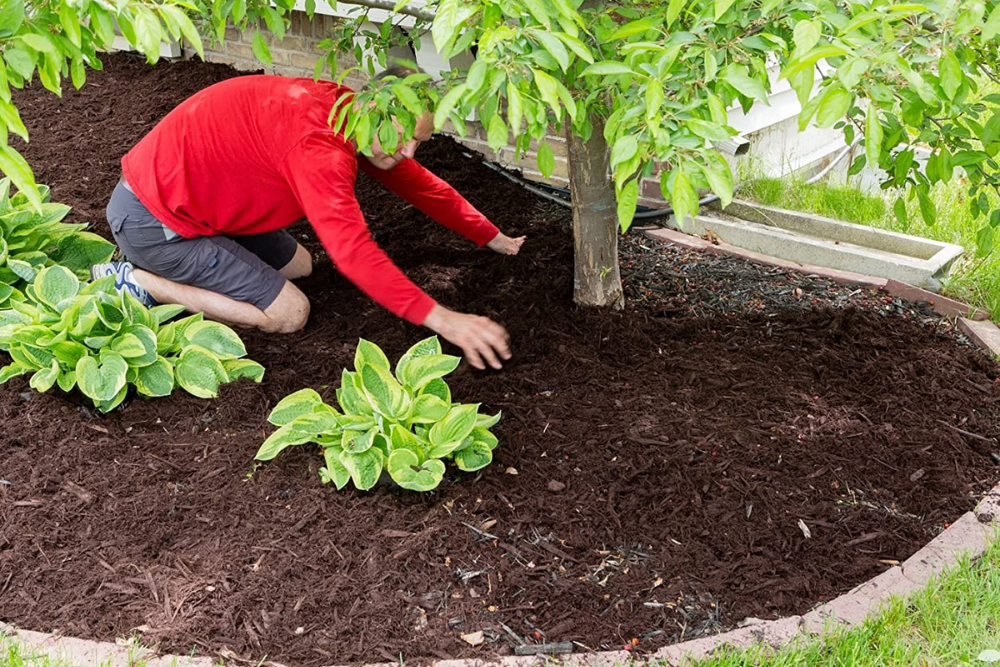
Overview
Composting your flower beds is a great way to improve their appearance. Let's select the greatest flowerbed compost. Prior to making a purchase, there are a few things to keep in mind, and that's why we're here.
Composting your flowerbeds can be a challenge. With so many choices available, it might be difficult to determine which one is ideal for your needs.
In this article, we'll look at a variety of compost options, each with their own set of advantages. You'll have a good notion of the best compost for your flower beds at the end of this article!
BRUT WORM FARMS Worm Castings Soil Builder - 30 Pounds - Organic Fertilizer - Natural Enricher for Healthy Houseplants, Flowers, and Vegetables - Use Indoors or Outdoors - Non-Toxic and Odor Free
View on Amazon- SCORE9.6AI Score
G Score is a ranking system developed by our team of experts (people love working outdoors with people and plants). It from 0 to 10 are automatically scored by our team based upon the data collected. This score has no relationship or impact from any manufacturer or sales agent websites. Learn more
- BrandBRUT WORM FARMS
- Prime
Blue Ribbon Organics OMRI Certified Natural Premium Organic Compost for Plants | Plant Food | Odorless Natural Fertilizer | Soil Builder | 7.9 Gallons | 1 Cubic Foot | 32-35 Pounds
View on Amazon- SCORE9.6AI Score
G Score is a ranking system developed by our team of experts (people love working outdoors with people and plants). It from 0 to 10 are automatically scored by our team based upon the data collected. This score has no relationship or impact from any manufacturer or sales agent websites. Learn more
- BrandBlue Ribbon Organics
- Prime
- SCORE9.6AI Score
G Score is a ranking system developed by our team of experts (people love working outdoors with people and plants). It from 0 to 10 are automatically scored by our team based upon the data collected. This score has no relationship or impact from any manufacturer or sales agent websites. Learn more
- BrandUNCO INDUSTRIES,INC
- Prime
Coast of Maine Organic Natural Gardening Compost Potting Planting Soil Blend for Roses, Other Flowers, and Plants, 20 Quart Bag
View on Amazon- SCORE9.4AI Score
G Score is a ranking system developed by our team of experts (people love working outdoors with people and plants). It from 0 to 10 are automatically scored by our team based upon the data collected. This score has no relationship or impact from any manufacturer or sales agent websites. Learn more
- BrandCoast of Maine
- SCORE9.4AI Score
G Score is a ranking system developed by our team of experts (people love working outdoors with people and plants). It from 0 to 10 are automatically scored by our team based upon the data collected. This score has no relationship or impact from any manufacturer or sales agent websites. Learn more
- BrandMiracle-Gro
- Prime
- SCORE9.2AI Score
G Score is a ranking system developed by our team of experts (people love working outdoors with people and plants). It from 0 to 10 are automatically scored by our team based upon the data collected. This score has no relationship or impact from any manufacturer or sales agent websites. Learn more
- BrandCharlie's Compost
- Prime
- SCORE9.2AI Score
G Score is a ranking system developed by our team of experts (people love working outdoors with people and plants). It from 0 to 10 are automatically scored by our team based upon the data collected. This score has no relationship or impact from any manufacturer or sales agent websites. Learn more
- BrandMichigan Peat
- SCORE9.2AI Score
G Score is a ranking system developed by our team of experts (people love working outdoors with people and plants). It from 0 to 10 are automatically scored by our team based upon the data collected. This score has no relationship or impact from any manufacturer or sales agent websites. Learn more
- BrandDr. Earth
- Prime
VIVOSUN Outdoor Tumbling Composter Dual Rotating Batch Compost Bin, 43 Gallon Black Door
View on Amazon- SCORE9.0AI Score
G Score is a ranking system developed by our team of experts (people love working outdoors with people and plants). It from 0 to 10 are automatically scored by our team based upon the data collected. This score has no relationship or impact from any manufacturer or sales agent websites. Learn more
- BrandVIVOSUN
- Prime
- SCORE9.0AI Score
G Score is a ranking system developed by our team of experts (people love working outdoors with people and plants). It from 0 to 10 are automatically scored by our team based upon the data collected. This score has no relationship or impact from any manufacturer or sales agent websites. Learn more
- BrandJobe's
- Prime
Compressed Organic Potting-Soil for Garden & Plants - Expands up to 4 Times When Mixed with Water - Nutrient Rich Plant Food Derived from Natural Coconut Coir & Worm Castings Fertilizer
View on Amazon- SCORE8.6AI Score
G Score is a ranking system developed by our team of experts (people love working outdoors with people and plants). It from 0 to 10 are automatically scored by our team based upon the data collected. This score has no relationship or impact from any manufacturer or sales agent websites. Learn more
- BrandOrganic Plant Magic
- Prime
Last update on 2024-04-19 / Affiliate links / Images, Product Titles, and Product Highlights from Amazon Product Advertising API
Peat-Free Compost
Peat compost has been used as a soil additive for many years. When it comes to making or purchasing compost, recent research have shown that peat should be avoided at all costs.
A single square foot of peat might take thousands of years to mature. Peat is currently being drained at a rate that is significantly quicker than it can replenish itself. Peat-free compost has been recommended by many environmentalists as an alternative.
According to research, only 3% of our ecosystem is made up of peat, which retains 30% of the world's carbon. As a result, enormous amounts of carbon dioxide will be emitted into the atmosphere during the process of harvesting peat.
So, using composts that are devoid of peat moss will be really advantageous. Green compost components, such as coir, coconut or wood fiber, are used in peat-free composts.
Depending on our time and resources, we can make our own peat-free compost or buy it.
Purchasing peat-free compost requires that the product has a label indicating that it is peat-free. A wormery can also be used to produce peat-free compost at home.
The Alpine Garden Society's Dr. Fay Edwards describes the process of composting. Worrisome is the name of the game for her method of composting.
Dr. Fay Edwards recommends avoiding citrus and onion-related foods as a general rule.
She also advises against eating any food that has been cooked. Peat-free organic compost can be made by mixing equal amounts of brown and green materials.
Multi-Purpose Compost
Most people choose multi-purpose composts when looking for composts that may be used in a variety of ways.
If we have the space, we can grow our own food in them. Wood chips, grass clippings, garden wastes, etc. are among the materials.
They come in two flavors: regular and peat-free. Peat-free composts, on the other hand, are better for the environment.
Herbs, leafy salads, and other food plants can benefit from the nutrients in these multi-purpose composts.
For up to five weeks, they can supply the nutrients needed by the soil and the plant. Multi-purpose composts have a number of advantages, including the following:
-
They aid in the establishment of deep roots.
-
They aid in water absorption and retention.
-
Composts that can be used for a variety of purposes release nutrients at different rates, depending on the needs of the plants they are intended to nourish.
-
For a wide range of plants, we can employ this technique.
One of the greatest composts for gardens is a multi-purpose compost. Compost that can be used for a variety of purposes is a great tool for beginning gardeners.
Potting Compost
While planting seedlings or young plants from a garden center, you can use potting compost.
Potting compost can be purchased or made at home in a compost container.
Composting requires the addition of one part coir or coconut fiber and two parts garden compost.
Drainage is made possible by the addition of vermiculite.
For up to six months, potting compost can supply nutrients. In addition to aiding in the formation of roots, it also aids in water absorption.
Organic Compost
Having an organic garden is a goal for many gardeners. Bagged organic composts are an excellent choice because they include no pesticides or other additions and are created from all-natural materials.
Composts like these are made from waste materials like plant waste, leaves, and other organic matter that would otherwise be thrown away.
You don't have to worry about chemicals getting into your food when you use these materials because they include nutrients that assist enhance your plants.
If you want to cultivate veggies that are totally organic, you should use organic compost.
Even while many composts are organic, only a small number are recognized by the USDA or OMRI as such (Organic Materials Review Institute).
Mulching
Leaves can be used to mulch the soil surface, which is one of the simplest ways to recycle them. Over time, the mulch will degrade, releasing nutrients into the soil. 2 to 3 inches of mulch in flower beds and vegetable gardens is ideal. Three to four inches is plenty for shrubs and trees. Store any excess leaves you have for when the weather becomes hot in June and you need to top off mulched areas.
Pine needles can also be used. Because of their unique properties, they form excellent, long-lasting mulch. All the bad news they've gotten about acidifying the soil is unjustified and amounts to a grain of truth in a pound of nonsense! Over the course of several years, the pH of the soil will only be slightly lowered. Simply sprinkling a little lime over the mulch in East Texas will keep the pH level at an appropriate level for several years.
The traditional approach of raking the yard to collect leaves for mulching is still effective and an excellent way to keep up with your New Year's pledge to get more active, but there are faster and more convenient options. For a quick and easy collecting, use your lawn mower to blow them into windrows. Alternatively, a bagging mower can be used to partially shred and bag leaves.
Sheet Composting
Grass and leaf cuttings can be raked into the soil of flower beds and gardens. Spray some high-nitrogen fertilizer on your garden in the fall, then cover it with a covering of leaves. You'll have rich, well-prepared soil in time for spring planting in only a few weeks. Rototilling into shredded materials is the simplest and fastest way to breakdown them. When it comes to shredding, your mower will perform a fine job of it once again. Rototilling leaves into the soil is the most efficient way to incorporate a big amount of leaves into the soil. Spread a thin layer, rototill the soil, and then do it all over again. Your garden will be better prepared for spring planting if you start adding leaves to the soil now.
Walkway Composting
To compost big amounts of leaves in the garden, using a pathway composting system is the best option. Over the course of a season or two, you may transform those leaves into garden soil using this technique. Almost no one I know who has sidewalks between their garden beds uses this simple, yet highly successful, technique. This is how it's done, as I've demonstrated. Dump your leaves 1 to 2 feet deep in the pathway gaps between raised beds. Then use a water hose to thoroughly saturate the ground. It is possible to repeat the process by adding another thick layer of leaves after the first one has been trodden into the walkway's subsurface by foot traffic. You can keep adding leaves to the surface until the walkway is as high as the garden beds as the leaves continue to push down over time. This need a LOT of leaves. Encourage your neighbors to donate their bagged leaves to the cause by asking them to do the same. In the past, I've used this method to fill in the paths of a 40-foot by 40-foot garden with hundreds of bags of leaves. It's hard to believe until you experience it for yourself. However, I advise you to be aware that such a simple method of composting can lead to a compulsion. Gardeners who practice walkway composting may soon find themselves running through the neighborhood in the early hours of the morning in order to keep up with their habit.
This "all-weather" garden path is made of compacted leaves. After several inches of rain, enough to make a garden path muddy, the soft surface nevertheless provides for simple access into the garden. " Leaf mold, a dark, partially degraded substance, will begin to appear on the surface of the leaves within a few months. Although some leaves retain their original shape and form, they disintegrate to the touch. A few more months and the material will be ready for composting. It is possible to utilize either of these forms of "black gold" in your garden soil or as mulch.
Homemade compost
Using kitchen and garden trash as carbon and nitrogen sources, you may make your own compost right in your own kitchen or garden. The use of worm castings in this organic compost makes it even more useful.
Mushroom compost
Mushroom compost is a slow-release organic compost and a good soil additive created from the compost of mushroom growers.
Composted manure
Manure from chickens, horses, or cows must be well decomposed and clear of weeds before it can be used.
Peat moss
Rhododendrons and blueberries, two acid-loving plants, can benefit from the addition of peat moss to their soils and soil mixes. You may determine the pH level of your soil by doing a soil sample test. Leaves or needles of acidic pine can be used as mulch.
How To Add Compost To Garden
You may add compost to your garden in a variety of ways, depending on where you live and how much space you have.
The top 3 to 5 inches of the current soil should be amended with 1 to 2 inches of compost if you don't have any plants yet.
Adding compost to the soil around your plants is an option if you already have them. While a little compost mixing is acceptable, you must be careful not to damage the roots of your plants in the process.
How Much Compost to Add to Garden Soil
Typically, you'll want to add between 1 and 2 inches of compost to the top 3 to 5 inches of the soil. The amount of compost you'll need depends on the size of your garden.
Compost, at a weight of about 5 pounds per cubic foot, should cover a garden area of 6 to 8 square feet.
Can You Add Too Much Compost To Soil?
Healthy plants can benefit from compost that has matured. Compost that has not yet developed should not be added to soil.
In your vegetable garden, you can use unfinished compost as a mulch to encourage worms to decompose it.
Can Plants Be Grown In Compost Only?
My compost pile or compost bin may provide butternut, pumpkin, and squash directly from the organic material.
Most of the leftover potting soil from my annuals goes into my compost, which likely contributes to the additional plant nutrients and minerals that a growing plant requires.
When used as a soil supplement and conditioner, compost is not a suitable substrate for seedlings to grow on.
Plant seeds and transplants directly in compost if you're using it as a mulch in your garden bed or vegetable garden. The plant's roots will grow deeper into the soil of the garden bed as a result of this development.
Planting directly into compost, whether in a pot or a raised garden bed, is not recommended.
As a result of the variety of possibilities now available, we hope that you'll give composting a try (or hone your current composting abilities)!
Let us know about your current and future initiatives in the section provided below.
When everyone does their fair part of composting, we know we'll be able to
-
reducing and eradicating trash
-
simplify your life and make it a better one
-
the harvest will be greater.
-
Composting in the garden is a never-ending process.
However, you have the option of starting it off on purpose.
.png)
